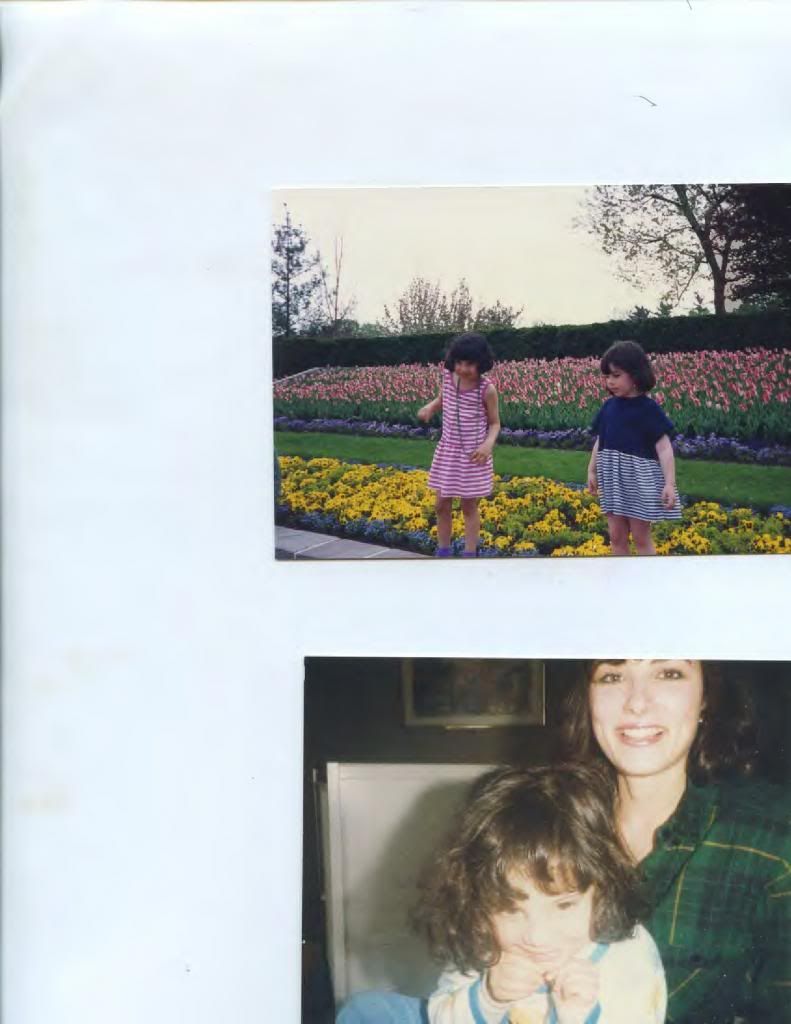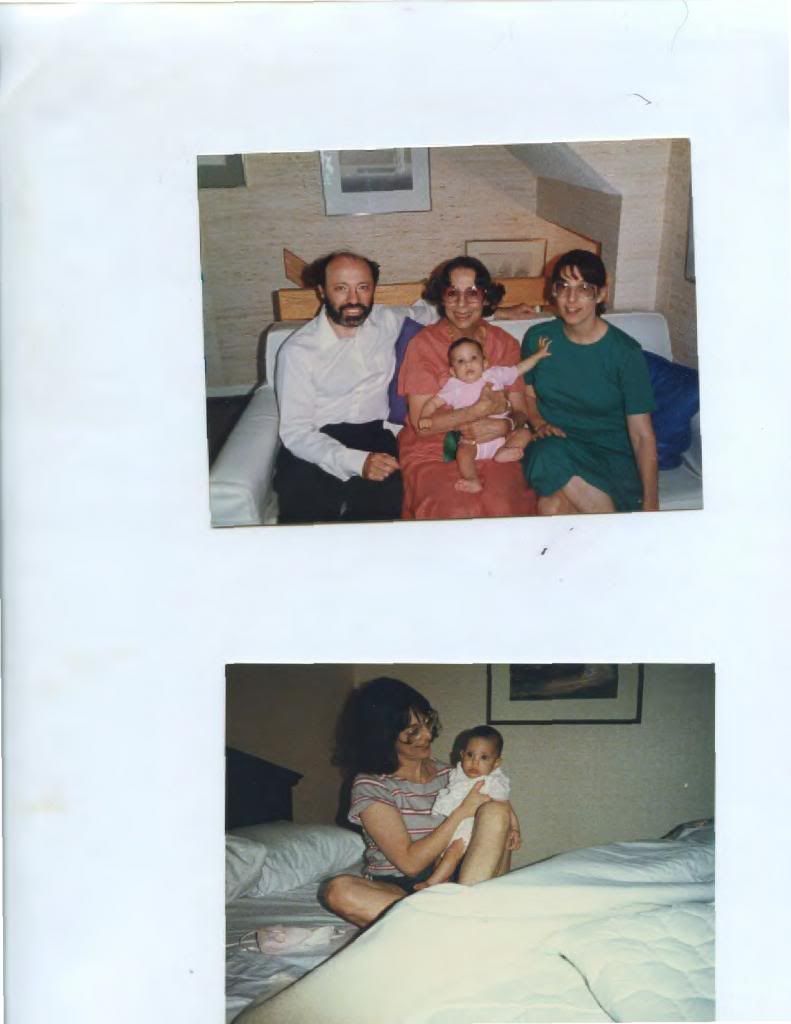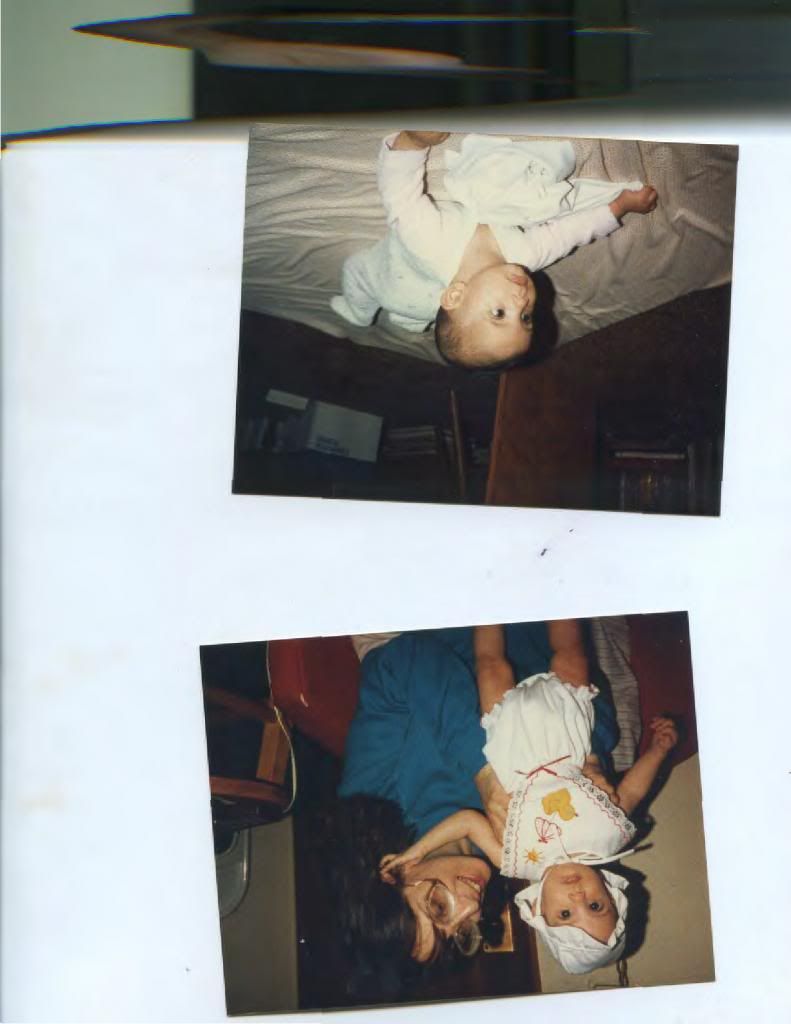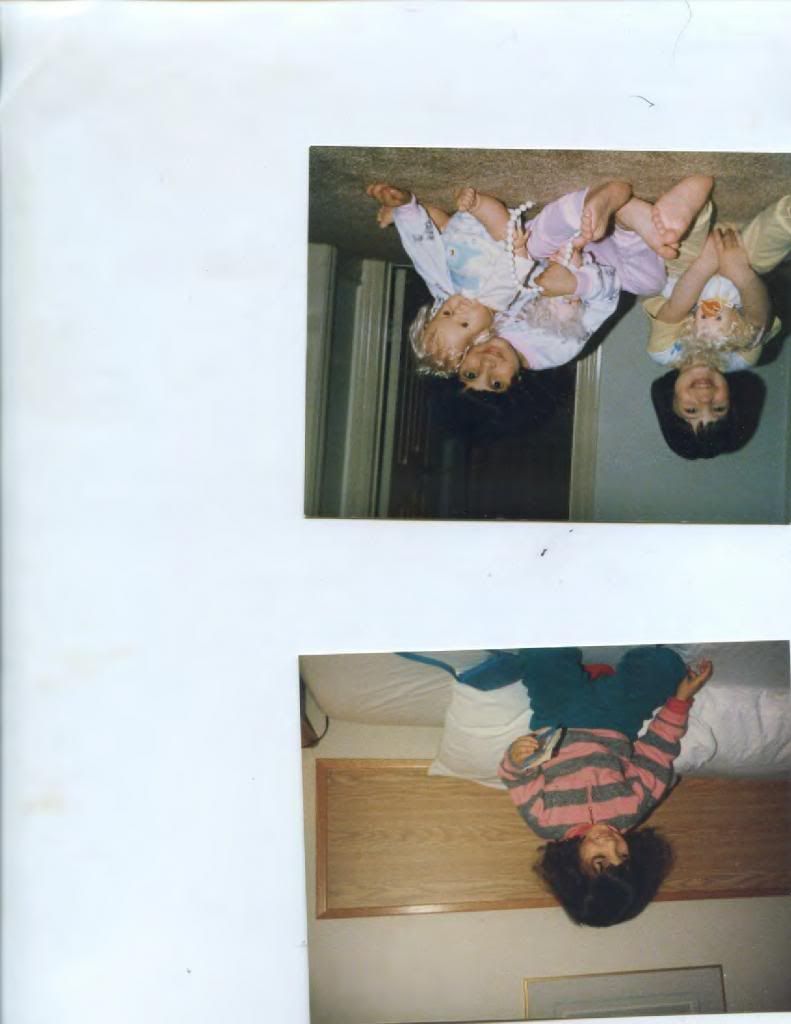Lack of facial expression when you were a baby?
daydreamer84
Veteran

Joined: 8 Jul 2009
Age: 40
Gender: Female
Posts: 5,001
Location: My own little world
Without accounting for restricted, repetitive patterns of behavior, I have always wondered how they distinguish between social anxiety, shyness and high functioning autism in, say, a 5 year old.
Shyness and being quiet are not markers of being autistic, Hans Asperger wrote that the children he dealt with spoke without shyness, and lacked distance. They didn't integrate socially, and had very poor non-verbal communication. If you're just shy and quiet then you are normal (not a good word).
But you're right that it could be easy to mistake shyness for withdrawn behaviour/lack of interest in others. Which is why I think misdiagnosis can probably happen in children. This is sometimes why I think stereotypic behaviour is actually a better marker for autism than poor social integration, because although it's rare to have a child so withdrawn, characteristic of autism. When poor social integration is compounded by stereotypic body movements, circumscribed interests, self-injurious behaviour, poor motor skills, poor self-help skills, and odd language/prosody - then I think it's unequivocal that the child's problems aren't just shyness.
Without accounting for restricted, repetitive patterns of behavior, I have always wondered how they distinguish between social anxiety, shyness and high functioning autism in, say, a 5 year old.
Shyness and being quiet are not markers of being autistic, Hans Asperger wrote that the children he dealt with spoke without shyness, and lacked distance. They didn't integrate socially, and had very poor non-verbal communication. If you're just shy and quiet then you are normal (not a good word).
But you're right that it could be easy to mistake shyness for withdrawn behaviour/lack of interest in others. Which is why I think misdiagnosis can probably happen in children. This is sometimes why I think stereotypic behaviour is actually a better marker for autism than poor social integration, because although it's rare to have a child so withdrawn, characteristic of autism. When poor social integration is compounded by stereotypic body movements, circumscribed interests, self-injurious behaviour, poor motor skills, poor self-help skills, and odd language/prosody - then I think it's unequivocal that the child's problems aren't just shyness.
I don't think anyone here has said that shyness and being quiet are markers of autism. Seeing as I had not mentioned shyness or anxiety in my original post, I think you had made the assumption that 1. I am a shy and anxious person and 2. I am wondering whether I have autism because I am shy and anxious. Your first assumption was correct, but your second was not. On my list of symptoms to show my doctor to try to get a referral, shyness isn't actually on there seeing as I had gathered from reading, that the personality trait of shyness is not directly relevant to autism. I gather that some people with autism are shy, just as some neurotypicals are. I am not even sure where this stereotype of autistic people being shy that you seem to have assumed I believe in, has come from. Before researching I believed in several stereotypes of autism and shyness = autism wasn't actually one of them, seeing as in the documentaries I have seen on the matter, the majority of children with autism shown have been rather loud and disruptive, rather than shy (for the record I am now better informed that not all people with autism are loud and disruptive either, and if they are, there are understandable reasons behind that behaviour.)
However since you brought up the topic of shyness, I thought I would enquire as to whether my shyness as a child could have made it harder to spot any problems in the way I communicated, understood how to socialise or had odd speech, which Rocket's comment seemed relevant to;
EDIT:
Marybird - Thanks for that info from Gillberg, that will be helpful to look into!
daydreamer84 - Thanks for posting the pictures. I may at some point post my pictures as a baby to get opinion but currently they are at my parent's house. It is interesting to see that both yours and KingdomofRats expressions seem to remain quite similar on the photos as you've grown into a child though - mine began to become animated in photos after the age of about 2 I think.
Yes, you're right shyness can occur in people with autism.
A bit redundant, but I mentioned it anyway, as a lot of people seem to conflate the two.
No, I was referring to his post only. And making a general comment.
Hans Asperger's paper is why there is a concept of a spectrum. Lorna Wing brought attention to his work.
And Hans himself mentioned that autistic kids could make friends too. But usually there is always some poor social integration at the very beginning, and improvement later. Not the other way round. Struggle to do so is a bit vague, a lot of NT kids struggle making friends too, some get bullied and have problems.
I thought it still stood that autistic kids have poor non-verbal communication, and verbal too. And problems with social integration from the very beginning?
Anyway, I think if the child has problems with communication both at home and at school, then it would be a reliable indicator it's not just shyness. Shy kids tend to be shy around certain people, but not around family members they like, or people they feel comfortable around. I also think socially inappropriate behaviour as well, and not developing peer relationships, and indifference to other people is noted especially in early years.
I thought it still stood that autistic kids have poor non-verbal communication, and verbal too. And problems with social integration from the very beginning?
Anyway, I think if the child has problems with communication both at home and at school, then it would be a reliable indicator it's not just shyness. Shy kids tend to be shy around certain people, but not around family members they like, or people they feel comfortable around. I also think socially inappropriate behaviour as well, and not developing peer relationships, and indifference to other people is noted especially in early years.
Thanks for your answers and pointing out that is was Hans Asperger that introduced the idea of a spectrum (I think I remember reading that now but I had forgotten). I think I may have phrased that wrong regarding Hans Asperger's ideas being outdated, as I think I more meant that modern accounts have found autism to be much more common in girls than his observations on just boys had indicated, and that it is more often missed in girls because their problems and the way they cope (maybe not talking much and therefore blending in as just shy rather than risking being inappropriate), may not be conspicuous until later in their life (As mentioned by professionals such as Tony Attwood).
I am still trying to figure out whether this is true or whether these professionals are over-diagnosing though. I see what you mean regarding the fact you would have thought that the social integration problems in autism should get better with age if they gradually learn how to be socially appropriate, rather than starting off as appearing okay then getting worse. However Attwood did mention that some girls with autism have shown the unexpected pattern of starting off as appearing to integrate okay socially when young, if another child takes on the role of looking after them and showing them the way, which other female kids are more likely to do than male kids are for male friends who may be struggling. Hence he described how autistic traits in females may only become noticeable once they lose this friend or have to start taking part in more complex conversation as they turn into a teenager (along with all the routines and calm, relatively quiet surroundings being turned upside down.)
daydreamer84
Veteran

Joined: 8 Jul 2009
Age: 40
Gender: Female
Posts: 5,001
Location: My own little world
^
Well for me abnormalities were noted by teachers as early as preschool (3 years old). They said I was "in my own little world" and had "strange behaviour". I have normal intelligence and spoke on time. I would ask inappropriate questions as an older kid and communicated in an inappropriate way like reciting a list of class rules to another kid. As a kid I was outgoing and loquacious and I see why it'd be harder to tell with a shy kid but the shy kid might still show very abnormal or inappropriate non-verbal communication.
daydreamer84
Veteran

Joined: 8 Jul 2009
Age: 40
Gender: Female
Posts: 5,001
Location: My own little world
I was more expressive in some of my older kid pictures.

daydreamer84
Veteran

Joined: 8 Jul 2009
Age: 40
Gender: Female
Posts: 5,001
Location: My own little world
I am still trying to figure out whether this is true or whether these professionals are over-diagnosing though. I see what you mean regarding the fact you would have thought that the social integration problems in autism should get better with age if they gradually learn how to be socially appropriate, rather than starting off as appearing okay then getting worse.
Lorna Wing and Uta Frith I think came up with the idea of a spectrum, but Han's papers were the work they based it on, the more "high-functioning" end of the spectrum.
You're right there are outdated opinions in his paper, like only boys having it, but I believe he changed some of his views later on.
I think there are kids who exhibit one autistic trait, but lack others. I remember this video of Francesca Happe talking about this:
http://www.youtube.com/watch?v=o9g2dGpGW7M
daydreamer84
Veteran

Joined: 8 Jul 2009
Age: 40
Gender: Female
Posts: 5,001
Location: My own little world
http://www.youtube.com/watch?v=o9g2dGpGW7M
Very interesting. I'm still listening to this. SO RRBs and social skills and communication impairments are more genetic than environmental and inherited and expressed independently and about 10% of children in the general population showed one of the triad of impairments (either RRBs or social problems or communication problems). * Also, executive functioning, central coherence problems and TOM, the 3 main cognitive deficits postulated in autism don't correlate and are dissociable. Interesting.
http://www.youtube.com/watch?v=o9g2dGpGW7M
Very interesting. I'm still listening to this. SO RRBs and social skills and communication impairments are more genetic than environmental and inherited and expressed independently and about 10% of children in the general population showed one of the triad of impairments (either RRBs or social problems or communication problems). * Also, executive functioning, central coherence problems and TOM, the 3 main cognitive deficits postulated in autism don't correlate and are dissociable. Interesting.
Indeed an interesting video - I did find it a bit confusing (probably need to watch it again and pay attention better
| Similar Topics | |
|---|---|
| how to learn facial emotions ? |
15 Nov 2024, 9:09 am |
| Baby, it's cold outside! |
14 Jan 2025, 9:09 pm |
| Colic baby |
11 Jan 2025, 1:47 pm |
| Lack of confidence and how to regain it |
09 Dec 2024, 11:19 am |










